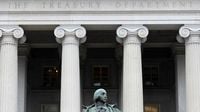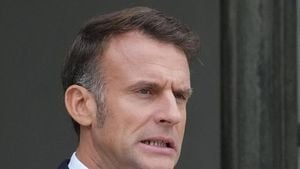On October 8, 2025, a long-awaited breakthrough arrived for Trinidad and Tobago’s energy sector: the U.S. Treasury Department granted a new license allowing the Caribbean nation and energy giant Shell to negotiate the development of the Dragon gas field in neighboring Venezuela. The move, confirmed by Trinidad and Tobago’s Attorney General John Jeremie at a packed press conference in Port-of-Spain, marks a significant—if cautious—step forward for a project that’s been stymied by international sanctions and shifting U.S. policy for years.
The license, issued by the Office of Foreign Assets Control (OFAC), came after months of anticipation. According to Reuters, the new authorization is structured in three stages, with the initial phase permitting negotiations through April 2026. But there’s a catch: U.S. companies must be included in the project, and specific commercial targets for these firms are embedded in the deal. "You have to hit commercial targets for U.S. companies. We don't think those targets are hard to meet. They are reasonable," Jeremie said, as reported by Reuters. He declined to reveal the financial terms, but emphasized that the targets were not difficult to achieve.
This isn’t the first time the U.S. has granted such a license. In October 2023, a similar authorization was issued, only to be revoked in April 2025 by the Trump administration, a blow that left Trinidad and Tobago scrambling to secure its energy future. The new license, however, is different in scope and conditions, reflecting evolving U.S. priorities in the region. According to the Associated Press (AP), the license allows for initial negotiations but stops short of covering the entire gas project. “We have six months to negotiate, within parameters,” Jeremie explained. “You have to hit targets, with respect to the U.S. and their posture with Venezuela.”
Why all the fuss over this particular gas field? The answer lies beneath the waves off Venezuela’s coast. The Dragon gas project, as it’s known, holds an estimated 4.2 trillion cubic feet of proven natural gas reserves, making it one of the largest untapped deposits in Venezuela. For Trinidad and Tobago, whose own reserves are dwindling and whose budget has seen spending outpace income in recent years, the Dragon project could be a lifeline. The gas is considered essential for powering the country’s liquefied natural gas (LNG) plants and other industries, which in turn generate vital revenue for the government.
Shell, the global energy major, has been at the center of these efforts. In the second quarter of 2025, Shell completed a marine survey at the Dragon field to determine optimal drilling locations and pipeline routes, according to Reuters. The survey was completed just before a U.S.-imposed deadline to wind down the previous license. The company referred all questions about the new license to the Trinidadian government, noting that Trinidad and Tobago holds the official authorization.
The path to this point hasn’t been straightforward. Venezuela and its state oil company PDVSA have been under U.S. energy sanctions since 2019, making any foreign involvement in their energy sector a complicated affair. Companies like Shell and BP (which was also involved in similar projects) have needed explicit U.S. licenses to operate in Venezuelan waters. The Trump administration’s decision in April 2025 to terminate previous licenses granted under President Biden’s tenure left plans for the Dragon field—and Trinidad’s energy security—hanging in the balance.
Securing the latest license was no simple feat. Trinidad and Tobago formally requested the authorization in May 2025, and it was granted only after a high-level meeting between U.S. Secretary of State Marco Rubio and Trinidad’s Prime Minister on September 30, 2025. According to the U.S. Department of State, Rubio outlined American support for the gas deal but stressed "steps to ensure it will not provide significant benefit to the Maduro regime." This balancing act—supporting a regional ally while maintaining pressure on Venezuela’s government—has defined U.S. policy throughout the saga.
Attorney General Jeremie was careful not to reveal too much about the negotiations’ inner workings. When pressed by AP reporters about whether talks with Venezuela had already begun, he replied, "I am not prepared to go into that at this time." He also declined to discuss the commercial terms in detail, saying only that the license permits certain benefits and that once the first stage is completed, the process could move toward actual gas exploitation.
There are also restrictions: previous U.S. licenses for the Dragon project banned any cash payments to the government of Venezuelan President Nicolás Maduro. The current license, while not public in its entirety, is expected to include similar safeguards. The U.S. State Department has repeatedly stated that it will ensure the project does not provide a "significant benefit" to Maduro’s administration, reflecting ongoing concerns about the regime’s human rights record and political legitimacy.
For Trinidad and Tobago, the stakes are high. The country’s once-booming gas sector has faced declining output, and with reserves running low, new sources of supply are urgently needed to keep its LNG plants and petrochemical industries humming. Government officials and energy experts alike view the Dragon project as vital to boosting production and securing much-needed revenue. As AP noted, “New streams of revenue are being sought by the government since its budget in recent years has seen spending outpace income.”
Shell’s involvement—and the requirement to include U.S. companies—reflects Washington’s desire to ensure American commercial interests are protected while also supporting regional stability. Jeremie, for his part, seemed optimistic about meeting the license’s conditions. He described the commercial targets as "reasonable" and "not difficult" to meet, though he stopped short of providing specifics.
BP, another major player previously involved in similar projects, did not immediately respond to requests for comment from Reuters. The uncertainty surrounding Venezuela’s energy sector, coupled with the ever-changing landscape of U.S. sanctions, has made long-term planning difficult for all parties involved. Yet, with the new license in hand, Trinidad and Tobago and its partners have a window of opportunity—however narrow—to move forward.
Whether this latest chapter will finally see the Dragon gas project come to fruition remains to be seen. The next six months will be critical, as Trinidad and Tobago, Shell, and their U.S. partners navigate the complex web of international regulations, commercial negotiations, and geopolitical sensitivities. But for now, at least, the door is open, and hope is flickering once again for a project that could reshape the region’s energy landscape.






